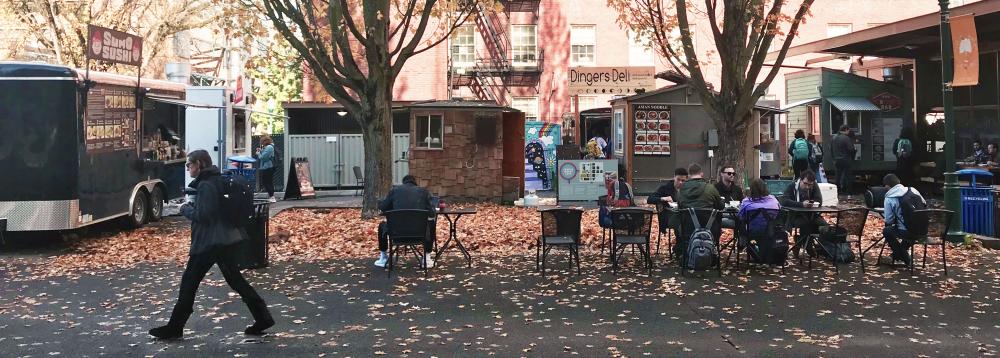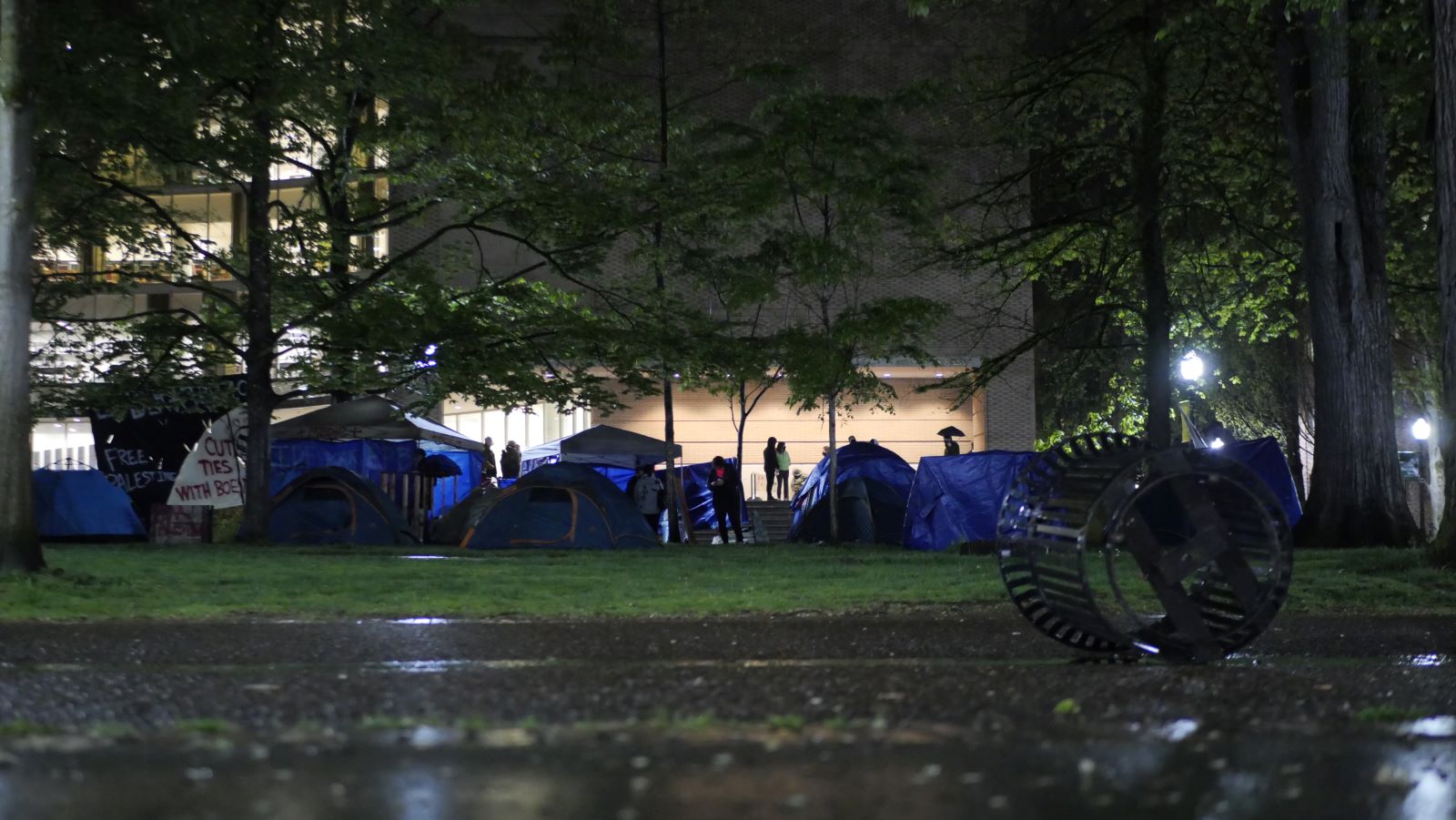Portland is a booming city with the job market and population on the rise. Despite this, the state of houselessness in Portland is one of the most visible issues in the city, and it isn’t being handled correctly.
It’s hard to hide—more than 1,800 people sleep outside in tents or on the streets every night, according to data from the City of Portland. That includes children, families, seniors and people with disabilities. There has been numerous legislation which attempts to hinder the visibility of the community rather than aid them. Even with nonprofits, donations and services provided for the houseless, it’s still not enough.
There are a variety of factors that contribute to houselessness. The housing market in Portland is growing increasingly unaffordable. The average one bedroom is approximately $1,132 according to the National Low Income Housing Coalition. With minimum wage being around $12 an hour and Social Security assistance having a limit of $735 locally, it is near impossible to afford rent, let alone other basic necessities.
Aside from affordability, there have been facility closures that have caused the widespread displacement of people. Dammasch State Hospital, a known institution that housed individuals with various mental illnesses and/or physical disabilities closed 20 years ago. After the closure some patients were placed in adult foster care but others were left to find shelter elsewhere. With the closure of such a large facility, the city said that they would have structures in place to accommodate the previous patients, yet never followed through on such promise.
Portland City Councilman and Housing Commissioner Dan Saltzman confirmed in an interview with City Journal that closure of Dammasch State Hospital “did increase the homeless population on the streets of Portland and a lot of other cities.”
“It’s a nationwide problem, and it really pulled the rug out from underneath a lot of people,” he said. “Community resources were supposed to be put into place when we closed the big institutions, but the second part didn’t happen.”
Multnomah County reported 4,177 people homeless on a single night last year, a 10% rise from 2015—many believed the number was even higher.
City officials are not well equipped and lack tact regarding this issue. Exposing tensions, the president of Portland Police Association controversially said in July the city had become “a cesspool,” a comment the mayor dismissed as “ridiculous,” according to The Oregonian.
To describe a vulnerable community who is often left to fend for themselves with no help as a “cesspool” is utterly disrespectful. Police should hold no bias toward the citizens of their city, yet the president is on record showing no regard for the safety or humanity of houseless people. Dancing around the systematic issues that have caused this crisis and blaming the individuals who suffer from them is not the proper way to deal with this matter.
Houseless people are not only comprised of criminals, addicts or the mentally ill. A majority of this community is filled with people who are the victims of systematic issues such as: lack of government assistance, an elite job market, unlivable minimum wage, stereotypes and discriminatory labels and little to no family support. Criminalizing this community and blaming them for issues so far out of their control is inhumane.
Passing strict legislation only furthers the dislike for their mere existence, such as the laws that prohibit sitting or laying down on any public property and not allowing any camps to be set up. Houseless people are people and cannot be treated like trash that needs to be hidden from the public eye.
City officials need to realize the more they overlook this issue the worse it will get. The houseless issue needs to be viewed as a humanitarian crisis and not a disturbance.






